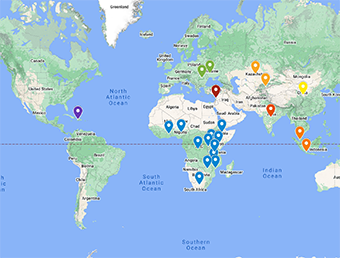

- Assistant Professor, Nursing, New York University
- Fellow, Research Education Institute for Diverse Scholars (REIDS)
Biography:
Dr. Lanier is a developmental psychologist whose research broadly centers on health promotion and disease prevention in communities of color, with a special focus on preventing HIV and STIs among African American adolescents. Using health equity and strengths-based lenses, her research seeks to understand how individual, social, and cultural factors influence adolescents’ sexual decision-making. Dr. Lanier’s current research examines how adolescent romantic relationships influence sexual behaviors. Her long-term goal is to develop effective developmentally-appropriate, culturally tailored interventions that promote healthy romantic relationships and protective sexual behaviors among adolescents.
Selected Publications:
Utsey, S.O., Bolden, M.A., Lanier, Y., & Williams III, O. (2007). Examining the role of culturespecific coping as a predictor of resilient outcomes in African Americans from high-risk urb an communities. Journal of Black Psychology, 33(1), 75-93.
Utsey, S.O., Bolden, M.A., Williams III, O., Lee, A.E., Lanier, Y., & Newsome, C. (2007). Spiritual well- being as a mediator of the relation between culture-specific coping and quality of life in a community sample of African Americans. Journal of Cross Cultural Psychology, 38(2), 123-136.
Utsey, S.O., Lanier, Y., Williams III, O., Bolden, M.A., Lee, A. (2006). Moderator effects of cognitive ability and social support on the relation between race-related stress and the quality of life in a community sample of African Americans. Cultural Diversity and Ethnic Minority Psychology, 12(2), 334-346.
- Behavioral & epidemiological research examining HIV prevention in disproportionately affected populations
- Identified determinants of HIV infection among Black women living in DC
- Evaluated intervention tool developed to increase HIV testing in clinical settings with African American men



